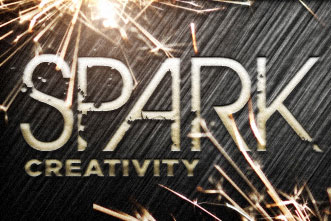I run a series of websites that are all centered on good ideas for churches. There are stage designs, sermon series and worship sets collected and referenced from churches around the globe. So I frequently get asked for ideas.
The requests usually come in the form of something like this: “We have a special event coming up called Ascend Conference. Our colors are green and gold. Do you have any ideas for me?”
I always get questions like that, as if I have some secret warehouse filled with well-indexed ideas. They imagine I can just walk down the green aisle or the gold aisle and find an idea labeled “Ascend.”
But that’s not how ideas work.
Ideas aren’t some scarce resource that can be hoarded. Everyone who has ever had a good idea has come by their idea the same way—through hard work and asking the right questions.
Many wish ideas did work that way. But I’m glad they don’t. I’m glad there isn’t a limited supply of good ideas. No matter who you are or what you do, you can come up with great ideas. It just takes the bravery and resolve to go through the process.
While everyone has their own process for developing great ideas, there are a few main questions that can get anyone started in the right direction. By taking a few moments to navigate through these questions, thoughtfully and deliberately, you can spark your brain to generate great ideas for your church.
Why are we doing this event/idea?
Resist the initial temptation to answer this question with a “Christian” answer. “To reach the world for Jesus” won’t give you the spark you need to come up with a great idea. Instead, consider why you’re doing this event instead of doing another event.
For instance: Why are we hosting a conference instead of doing a church car wash?
You’re probably hosting a conference because you want to share some information and inspire people to action. A conference is a good way to do that. A car wash is a lousy way to do that.
Then ask yourself why you’re doing a conference rather than making a teaching DVD. A DVD is cheaper, has a longer lasting impact and is much more easily distributable. There have to be reasons a conference is a better option. Identify those and you’ll identify the core of what you’re trying to accomplish. You’ll identify the core of your message and the need you’re trying to meet.
What are the perceived needs of the people I’m trying to reach with this event/idea?
You’ve already identified the real need you’re trying to meet. But what are people’s perceived needs? For instance, a missions conference meets a need in people to know what’s happening around them and to give money to projects. But your average Joe could care less about what’s happening in Djibouti and he’s struggling to make ends meet as it is. He doesn’t want to be guilted into giving. If you try to meet his real need, he’ll just decide not to show up.
But his perceived need is that he wants to do something that actually matters. He wants his life to count for something.
The perceived need and the real need are often very closely related. Sometimes they’re almost completely unrelated. But it’s important you know both of these.
How can I connect with people’s perceived needs without baiting and switching?
This is where the idea comes into play. You need to show people that this event/idea will meet their perceived needs. Your verbiage, your design, your look, your everything needs to tailor itself to those perceived needs.
But you also need to find the connection between those perceived needs and the real needs. You need to meet both. Too often, we lose the trust of our congregants or communities by promising one thing and delivering another. Don’t be the church who cried wolf.
Finally, ask, what would get me excited about this idea/event?
Considering your newly discovered perceived need, and assuming you psychologically represent the people you’re trying to reach, figure out what would pique your interest for this event or idea.
This is where the magic happens. This is where you get the good ideas. This is your warehouse with limitless supply.













